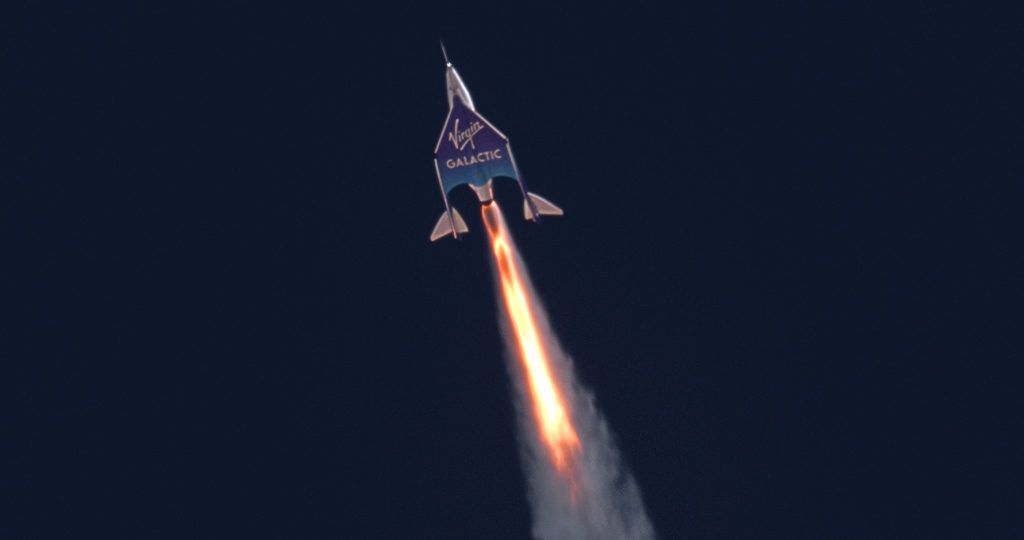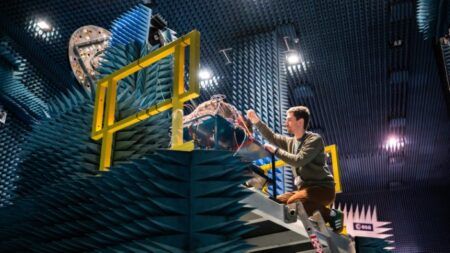Virgin Galactic plans to fly its first commercial mission later this month after flying its final crewed flight test.
The company’s 25th test flight took off from Spaceport America in New Mexico at 9:15am. The Unity spacecraft reached an altitude of 54.2 miles (87km) and a top speed of Mach 2.94 after being released by carrier aircraft VMS Eve and then landed at the Spaceport at 10:37.
The “Unity 25” mission was Virgin Galactic’s fifth spaceflight and the first since the July 2021. VSS Unity was piloted by Mike Masucci and CJ Sturckow, while VMS Eve was flown by Jameel Janjua and Nicola Pecile. Also onboard Unity were chief astronaut instructor Beth Moses, astronaut instructor Luke Mays, senior engineering manager Christopher Huie and senior manager of internal communications Jamila Gilbert.
Virgin Galactic is to offer flights on its sub-orbital spacecraft to paying tourists who want to experience a few minutes of weightlessness and the view from 50 miles above the Earth. It also plans to provide room on spacecraft for researchers who want to conduct experiments.
Jamila Gilbert said, “I flew to space just one hour from the street I grew up on. It is hard to put into words what this experience was like, but I’m sure I’ll spend the rest of my life trying.
“As one of the very few non- technical people to fly to space, my role in this mission marks a sea change in who can go to space, and is a promising sign of the opportunities Virgin Galactic and the commercial space sector are ushering in.”
“Unity 25 was a fantastic achievement,” said Michael Colglazier, CEO of Virgin Galactic. “Witnessing our inspiring crew’s pure joy upon landing, I have complete confidence in the unique astronaut experience we have built for our customers. Our teams now begin post-flight analysis as well as preparation for Galactic 01, our commercial research mission, planned for late June.”
Virgin Galactic was founded in 2004 by billionaire Richard Branson and the development program for its space tourism service has suffered several setbacks. In 2007 a rocket engine explosion killed three people and in 2014 the SpaceShipTwo test vehicle VSS Enterprise crashed killing the test pilot and injuring the co-pilot.
The company then paused operations for longer than initially planned after the 2021 spaceflight to refurbish Eve and Unity after a FAA investigation revealed the spacecraft had veered off course during its flight.
Virgin Galactic plans to expand its fleet and passenger services with its third generation of spacecraft, the Delta class, for 2026 and a new generation of mothership.





